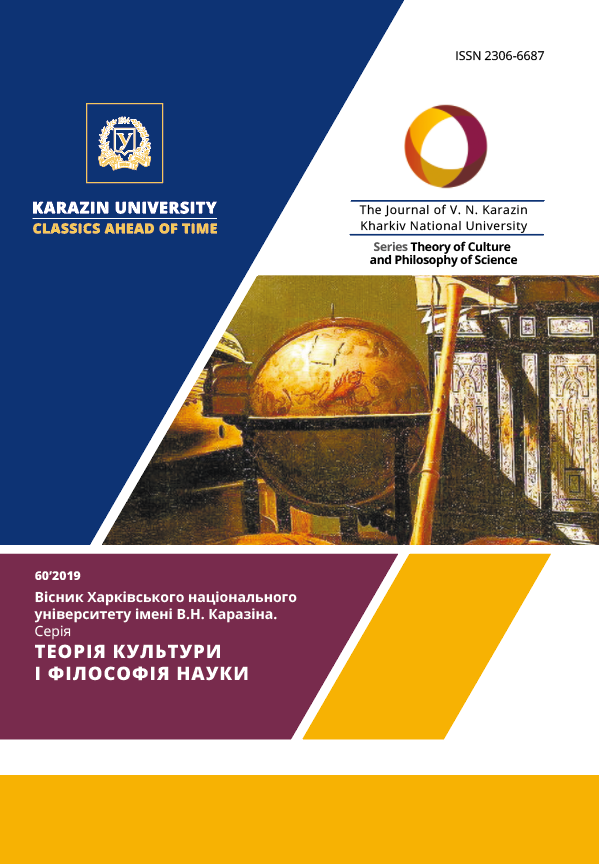Philosophy of metaphor and Blumenberg``s metaphorology
Abstract
In the article metaphorology is considered in the light of paradigms. Metaphors of ‘mighty’ and ‘naked’ truth are analysed as well as two backgrounds of metaphorics. Absolute metaphor in Blumenberg`s understanding is researched. It is concluded that absolute metaphor differs from ‘ordinary’ metaphors and confronts terminology.
Hans Blumenberg in his book “Paradigms for a Metaphorology” makes a suggestion that elements of figurative speech are makeshifts to be replaced by logic. He claims that history of concepts can be only destructive: it is demolishing burden of tradition (corresponds to Francis Bacon`s ‘idols’).
When analysing the metaphor of ‘mighty’ truth, H. Blumenberg links it to the closest metaphor of light, then to metaphorics of imprinting. Here he accepts that metaphors in this function do not obligatory appear in the lexical sphere of expression. Later on he raises the question of the truth of metaphor itself. Blumenberg`s metaphorics of the ‘naked’ truth is rather catching. Metaphor goes side by side with importance of ‘clothing’, some mask, while the ‘naked truth’ should unveil the ‘sacred mystery’.
First of all, Blumenberg indicates two kinds of metaphors: absolute metaphors (basic language elements) and ‘leftover elements’. It should be underlined that absolute metaphors cannot be dissolved into conceptuality and one of such metaphors cannot be replaced by any other. If we try to compare metaphor and allegory, allegory is more connected with dogmatism. As for metaphor and symbol, the latter is static while metaphor is more dynamic. Also two backgrounds of metaphorics: organic and mechanical – are profoundly analysed by Blumenberg. And finally, unlike absolute metaphor myth has unclear origin.
Downloads
References
Gadamer H. G. Truth and Method / Hans-Georg Gadamer. – New York: Crossroad, 1989. – 601 p.
Gorer G. The Americans: A Study in National Character / Geoffrey Gorer. – London: The Cresset Press, 1948.
Pascal B. Pensees and Other Writings / Blaise Pascal – Fragment 82, Imagination. – Oxford World`s Classic, 2008. – 320 p.




